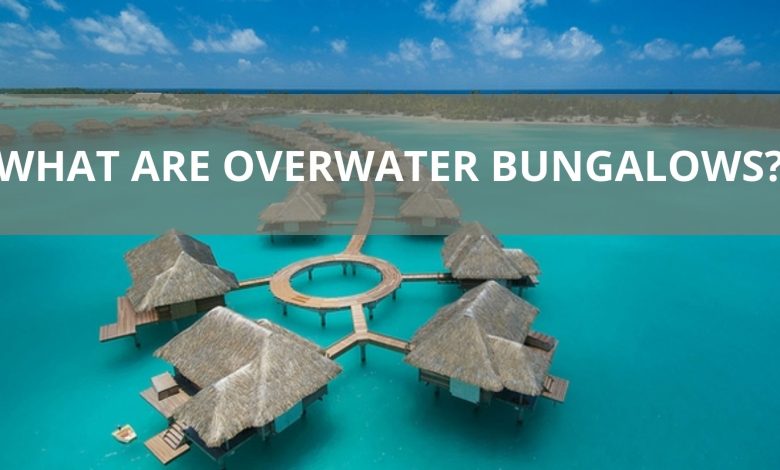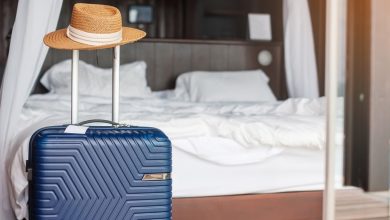What are overwater bungalows?

The overwater bungalows are a unique hotel experience that has become more popular in recent years. They provide guests with a luxurious stay but aren’t as expensive as you might think. Overwater bungalows are often built on stilts over the water and are typically located in tropical areas. They’re usually built on small islands, which are often surrounded by coral reefs and uninhabited.
Where can I find overwater bungalows?
Overwater bungalows can be found in many parts of the world, but they’re most popular in tropical and subtropical destinations. The Maldives is one of the most popular places to find overwater bungalows, with over 1,200 islands that house more than 100 resorts. Other popular destinations include Bora Bora in French Polynesia and Moorea; Tahiti; the Caribbean island of St. Lucia; Fiji; Mexico’s Riviera Maya area; Mauritius; Malaysia’s Langkawi islands; Thailand’s Phuket island group and the Andaman Sea coast (Koh Samui); Indonesia’s Gili Islands group near Lombok or Komodo National Park on Flores Island; Australia’s Great Barrier Reef region to Port Douglas area in Queensland.
You can also check out websites like Tripadvisor or Booking for reviews and tips on where to stay if you want an idea of what it’s like before booking your vacation trip!
Are overwater bungalows expensive?
As with most things in life, you get what you pay for. The cost of an overwater bungalow will vary depending on where and when you book it and whether or not the room has a private pool (the more expensive option).
For instance, if your itinerary includes one night at an overwater bungalow on Bora Bora during peak season (December 20th – April 30th), expect to pay at least $1,000 per night. If it’s off-season (May 1st – December 19th), that price drops to around $700 per night. In comparison, if your trip doesn’t include a stay at an overwater bungalow but does include two nights at another resort on Bora Bora during high season, expect to pay roughly $1,000 per person each night (so $2K total).
If those prices are too steep for your budget or comfort level—and I don’t blame anyone who feels this way—there are still plenty of options available when planning a trip to French Polynesia: island hopping packages that include multiple islands and accommodations without pools; resorts with pools but no overwater villas; villas without pools but with access to the water via nearby beaches or lagoons; etc…
How do I get to overwater bungalows?
The location of your overwater bungalows will determine how you get there. Most are set on private islands, so they can only be reached by boat or helicopter.
If you’re staying in a Maldivian resort, chances are that your flight to the atoll where your resort is located will land on an island and then take a boat or seaplane to arrive at your final destination. If this is the case for you, then all travel between islands will be done via boat or seaplane.
Some resorts have speedboats that can transport guests from one island to another; otherwise, all transportation between islands will be done by ferry.
Am I limited to swimming in the ocean while staying in an overwater bungalow?
While you can swim and snorkel in the lagoon, there are other options for swimming as well. Your overwater bungalow will most likely have a private pool, which will give you the opportunity to swim in freshwater rather than saltwater. Most overwater bungalows in United States also have a communal pool that guests can use if they so choose.
If you’re staying at an all-inclusive resort with multiple overwater bungalows, there’s no reason why one of your roommates couldn’t join you on one of these excursions! If not, simply call down to reception and ask if there are any other guests who want to go along with you—you may find yourself with an instant friend!
What is the difference between overwater and beach bungalows?
An overwater bungalow is a standalone structure built over the water. The name comes from the fact that you are literally sleeping on top of the ocean.
These accommodations are typically more expensive and luxurious than beach bungalows, which sit on dry land rather than floating in it. They also tend to be less private, as they may be closer together or have other structures built between them (like restaurants).
Do overwater bungalows have washers and dryers?
Some overwater bungalows don’t have washers and dryers. In those cases, you’ll have to wash your clothes at the resort’s laundry facility or hand them over to the resort concierge.
In most cases, though, you’ll find that your overwater bungalow will have its own washer and dryer. If it doesn’t, it’s worth asking whether there are coin-operated washers and dryers nearby so that you can get some clean clothes while you’re on vacation!
Can I change rooms during my stay at an overwater resort?
You can change rooms at an overwater resort, but it may cost you. The best thing to do is find out about the options for changing rooms and communicating them clearly to your travel agent when booking. You can also request a room transfer when you check in at the resort.
For example, if you’re staying at Villa Ombak Laut in Indonesia, they offer a “Swap & Save” program where guests who want to move from one type of room to another (such as from standard to deluxe) can exchange their room category and save money on the price difference between rooms. However, they do not allow swaps between hotels—so if you want a specific view or location within your hotel complex, make sure that’s clear when booking your trip!
Are overwater bungalows suitable for kids?
Yes, but with some caveats.
If your children are over the age of 5 or so, they will enjoy the water and views. Kids will also likely enjoy the freedom that comes with staying in an overwater bungalow. At the same time, you should be prepared for them to get wet on their own—it’s not like a hotel where there are strict rules about pool access (i.e., no handrails or steps). Kids might even want to explore other areas of your resort’s grounds as well!
The good news is that most overwater bungalows have enough room inside for parents who want to relax while their children play outside (or vice versa). That said, if your child is under 10 years old or has any sort of disability that makes it difficult for them to explore independently, it’s best not to book an overwater bungalow unless you’re prepared for constant supervision.
Many travelers prefer these unique hotel rooms.
Overwater bungalows are a popular choice among travelers who want to experience the ocean. They’re also a practical option for families, as they offer privacy and give parents some extra time with their kids each night. If you’re looking for a way to unwind on your vacation, an overwater bungalow is a perfect place: you’ll be able to relax in your room and take advantage of all the services available at your hotel.
If you’re interested in exploring nature more deeply than just by lounging around on a beach, this type of accommodation will give you plenty of opportunities to do so—and still be close enough to civilization that it won’t require too much effort!
Conclusion
We hope that you’ve enjoyed learning more about overwater bungalows. These unique rooms provide an amazing experience for travelers, and we encourage you to visit one for yourself on your next vacation.
Also Read: Costco Login problems




